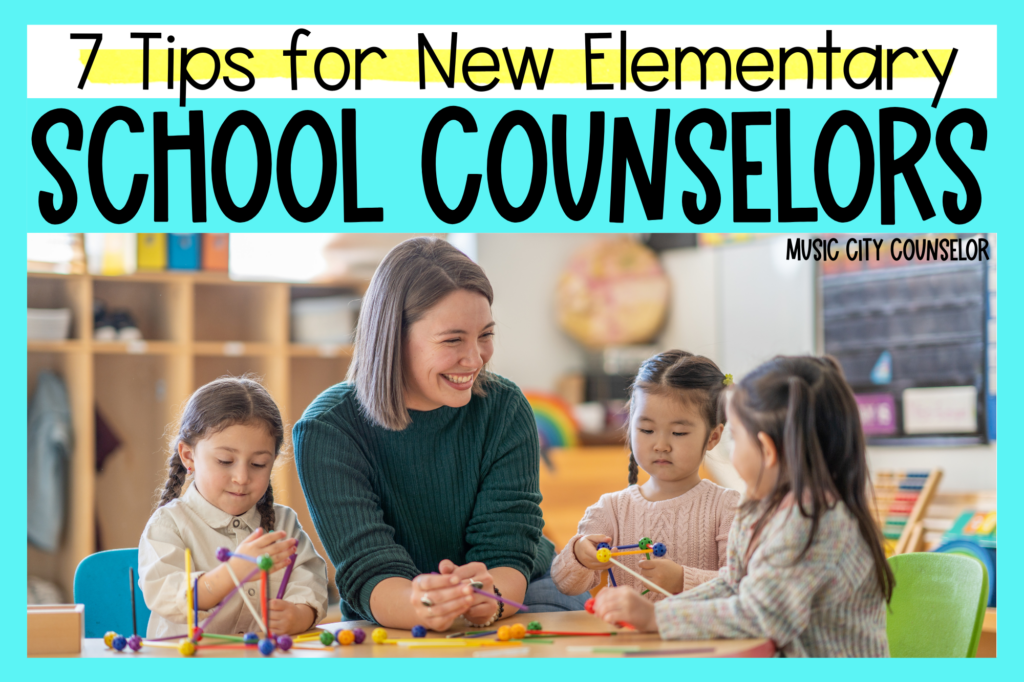
You’re a new elementary school counselor and are feeling overwhelmed. There are so many new faces. New and varied responsibilities. You’re needed in so many ways and by so many people. You just don’t know where to start. Friend, I’ve been there! From a seasoned counselor to you, here are 7 ways you can build a strong foundation as a new elementary school counselor this year!
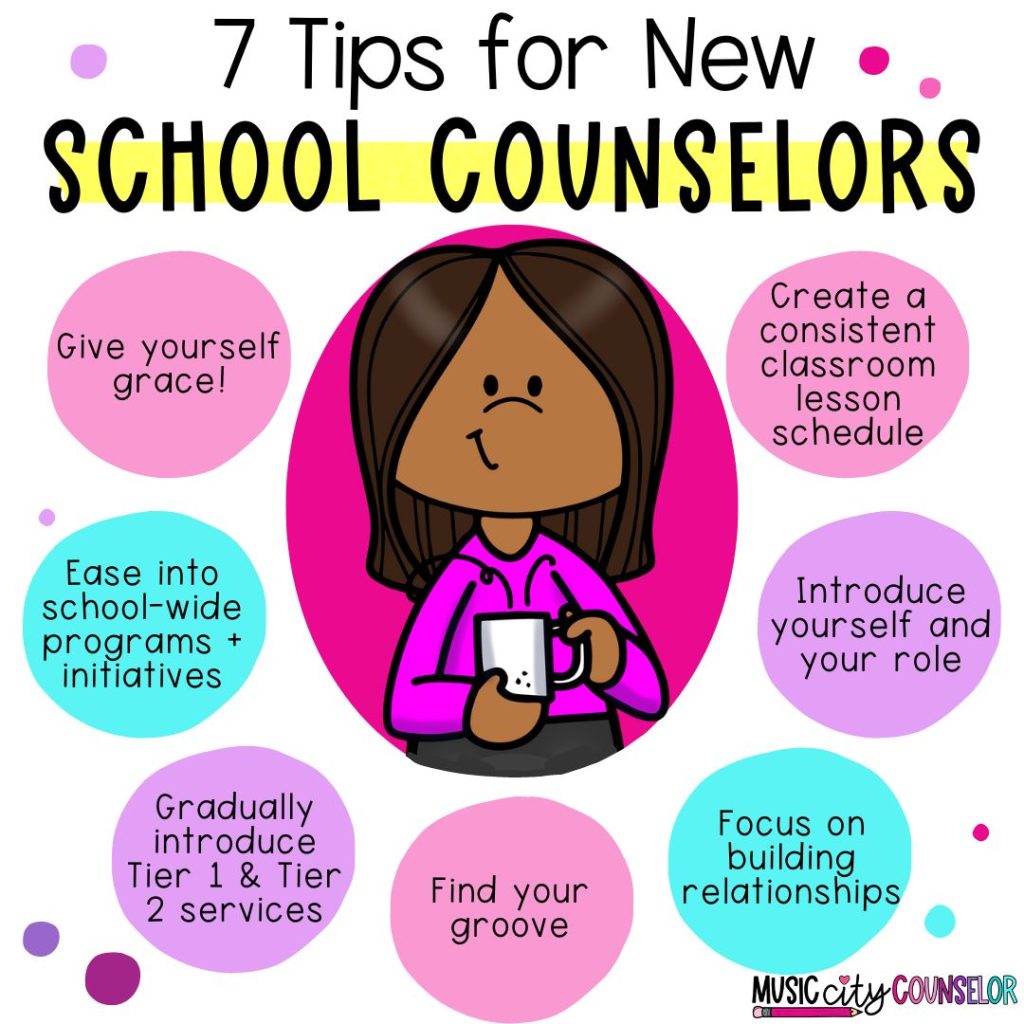
1) Create (and stick to) a consistent classroom lesson schedule
Before students start school, establish a consistent schedule for classroom lessons. At teacher inservice, ask each grade level for their preferred lesson time – and stick to this plan for the whole school year! Aim to provide these Tier 1 services to each class once or twice a month.
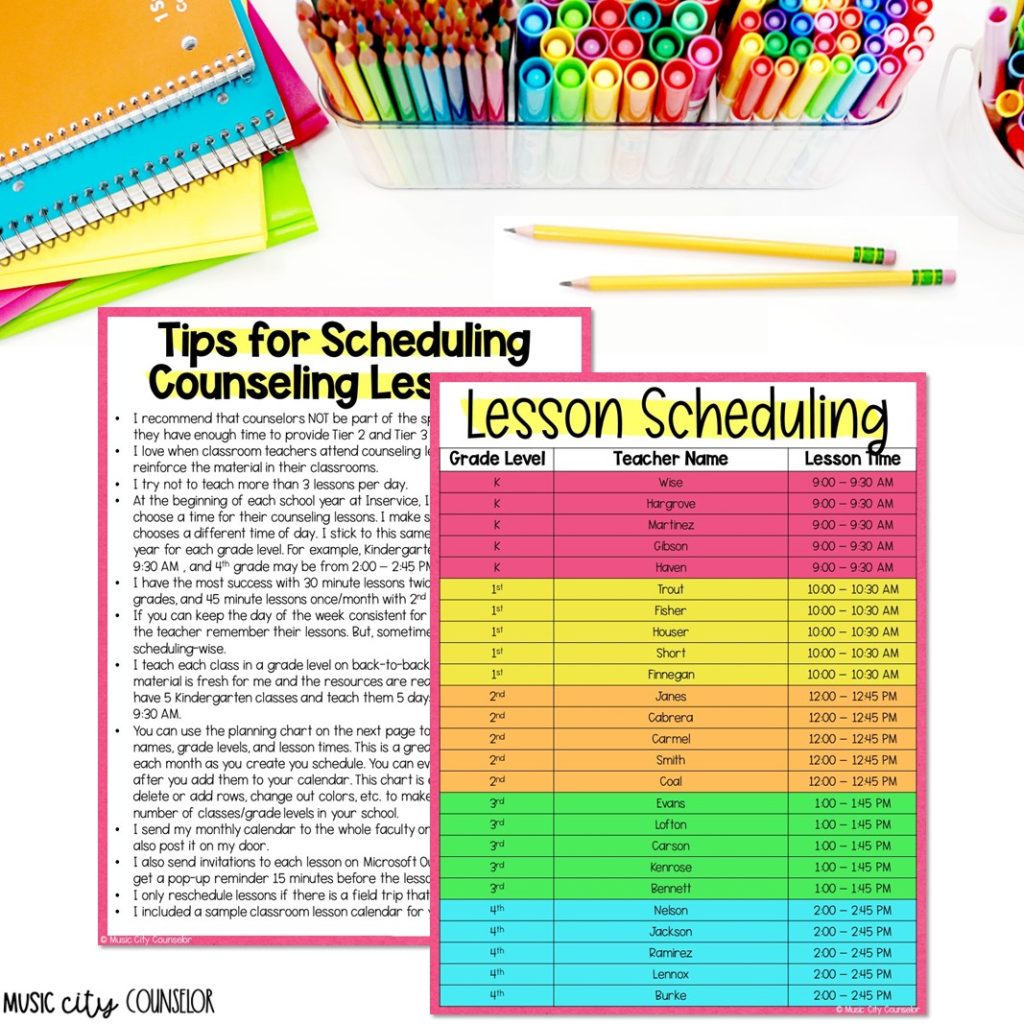
This consistency helps you build rapport with teachers and students. The more your students see you, the sooner they will know you as a “safe person.”
These classroom lessons are preventative in nature – teaching students critical life skills that may prevent them from needing more intensive services down the road.
Counseling Lesson Topic Ideas:
- Identifying feelings
- Coping skills
- Personal safety
- Social skills
- Conflict resolution
- Bullying prevention
- Career exploration
Counselor Collab is a great low-cost curriculum option for you to invest in as a new school counselor! This membership offers ready-to-use resources so that you can spend less time planning and more time serving students!
2) Introduce yourself
Start the school year by introducing yourself to everyone. Consider hosting a “Meet the Counselor” event during Open House, sending home a flyer to families, or presenting at a PTO meeting. Teach all students a meet the counselor lesson that teaches them all about you (your background, favorite things, family, pets, etc) and the ways you can help.
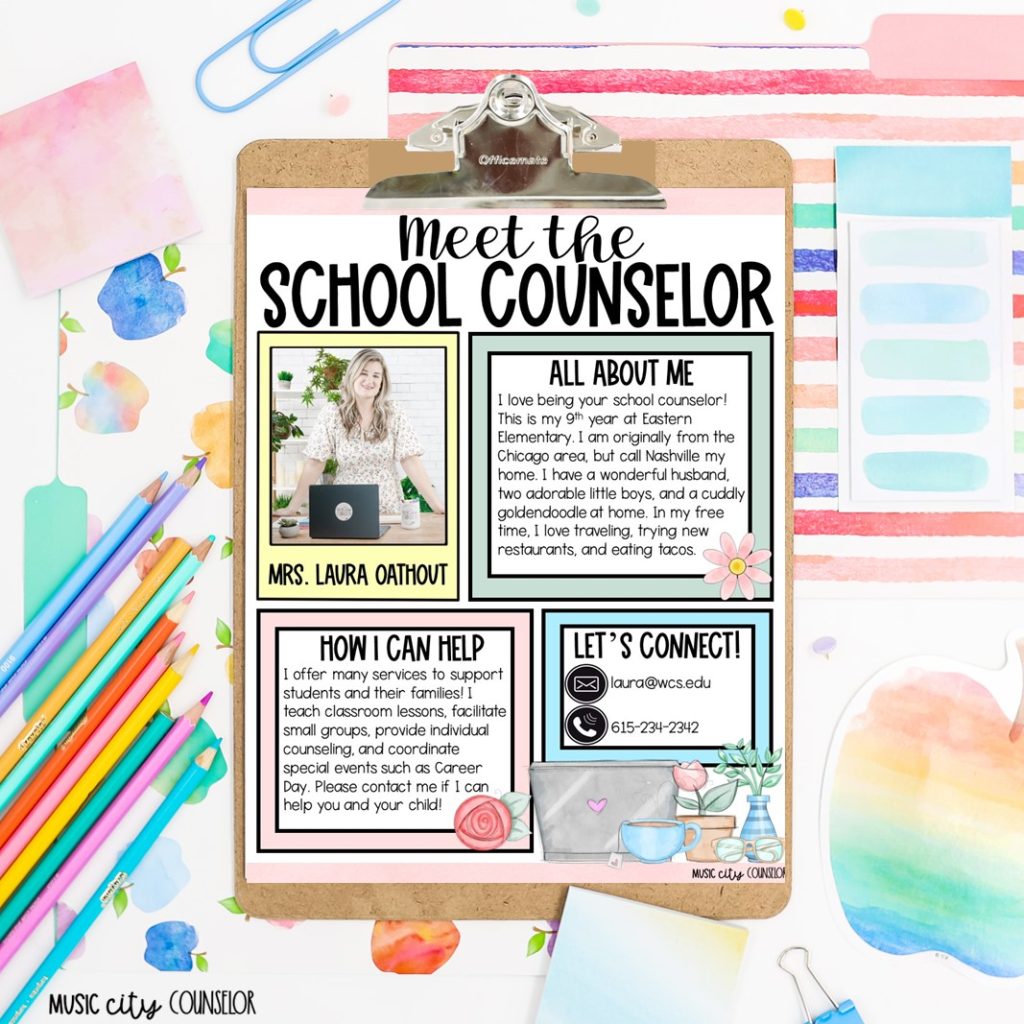
Make your presence known early on, in as many different ways as you can, so that your school community recognizes you as an approachable, caring, and safe person. Help with car rider duty, greet students at the front door during arrival, and say “goodbye” to students at dismissal. This “face time” is so critically important!
3) Connect with your school community
Building trust with students, teachers, and parents is the cornerstone of your role as a school counselor.
Teach engaging, memorable, and fun lessons to your students. Eat lunch with students, greet them warmly in the hallways, push them on the swings at recess, give them hugs and compliments. Work hard to remember as many of their names as you can – and greet them by name! Send home “happy notes” to parents to share positive things their child did or accomplished. Chat with parents at Open House, in the front office, or at dismissal. These interactions will mean more than you know!
4) Find your groove
Before diving into more intensive services like small group counseling or school-wide programming, focus your energy on settling into your role and routine.
Focus on becoming comfortable with your responsibilities as a new school counselor and building positive relationships with faculty, staff, students, and parents first. You’ll have plenty of time to plan and implement programming soon – once your feet are wet!
5) Gradually introduce Tier 2 & 3 services
Once you feel more settled into your role and have developed a positive rapport with your school community, ease into offering Tier 2 and 3 services.
Start with administering a needs assessment to students, teachers, and parents. This will identify needs and help you deliver data-driven, relevant, and meaningful services.
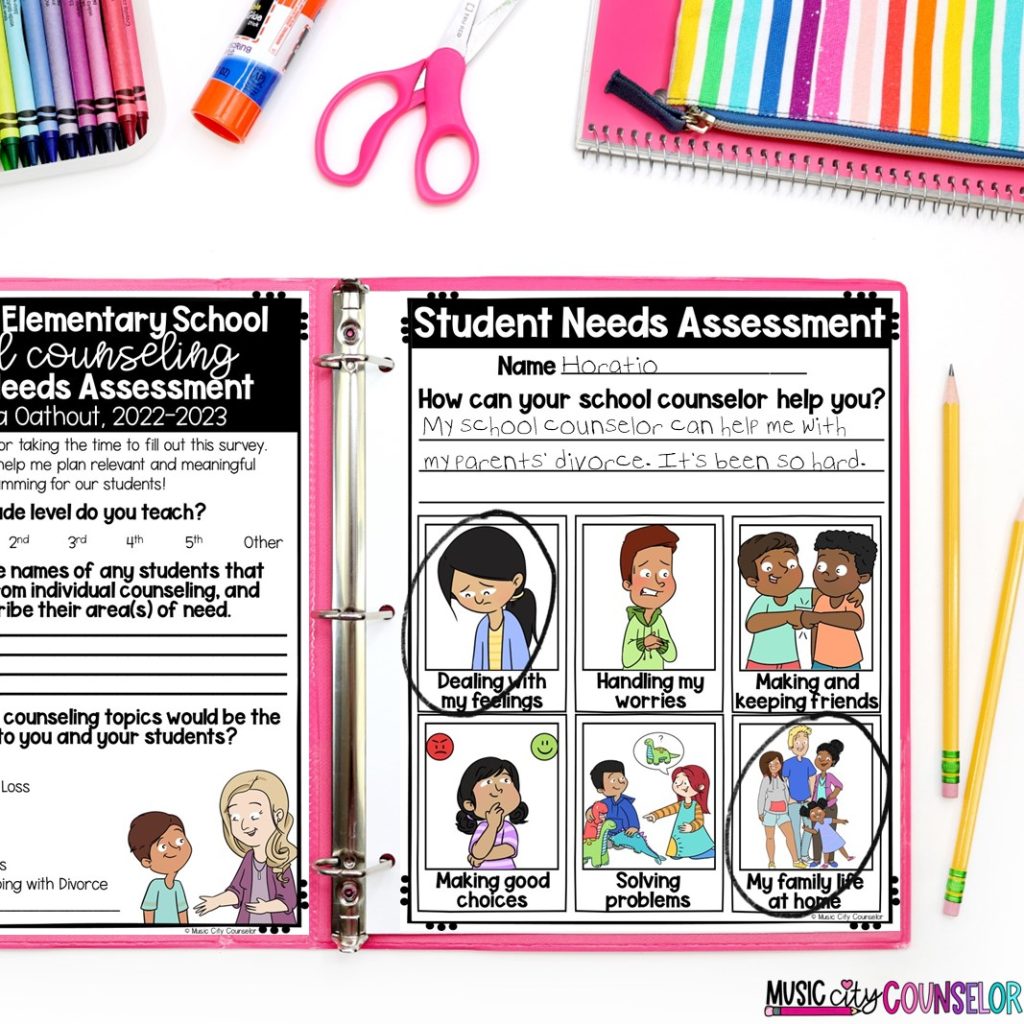
Small groups can address specific areas of concern like bullying, academic stress, and trouble with friends.
Individual student needs will arise naturally, and you can address these as they come. Individual counseling needs might include grief, anxiety, or divorce.
6) Ease into school-wide programs and initiatives
Your brain is probably swarming with ideas for how to make your school a better place! But, don’t overwhelm yourself by trying to implement all of these at once or even all in your first year.
It’s okay to say “no” to others (and yourself!) while you’re still getting a firm footing at your new role.
Collaborate with stakeholders and use your needs assessment data to determine which areas need to be prioritized first. Then, determine which broader topics like career exploration and bullying prevention can be addressed collectively as a school.
Your school-wide programs WILL have a profound impact on your school culture – just pace yourself in getting there!
7) Give yourself grace
This might be the most important tip of all – you’ve got to give yourself grace this first year, and lots of it! Building a strong counseling program is going to take time.
You’re going to make mistakes and encounter unexpected challenges. You will look back and wish you did things differently, but that’s okay. You’re going to learn and grow so much this year. Be patient with yourself. Everything will fall into place!
Don’t forget to seek out support from more experienced colleagues (like me!) and your own school faculty when you need it.
Your first year as a new school counselor is going to be filled with rewarding moments and lots of opportunities to positively impact your students. Creating a consistent schedule, building connections, and gradually expanding your services will set yourself up to become a safe person for students and a valued member of your school staff. Take a breath– you CAN do this!

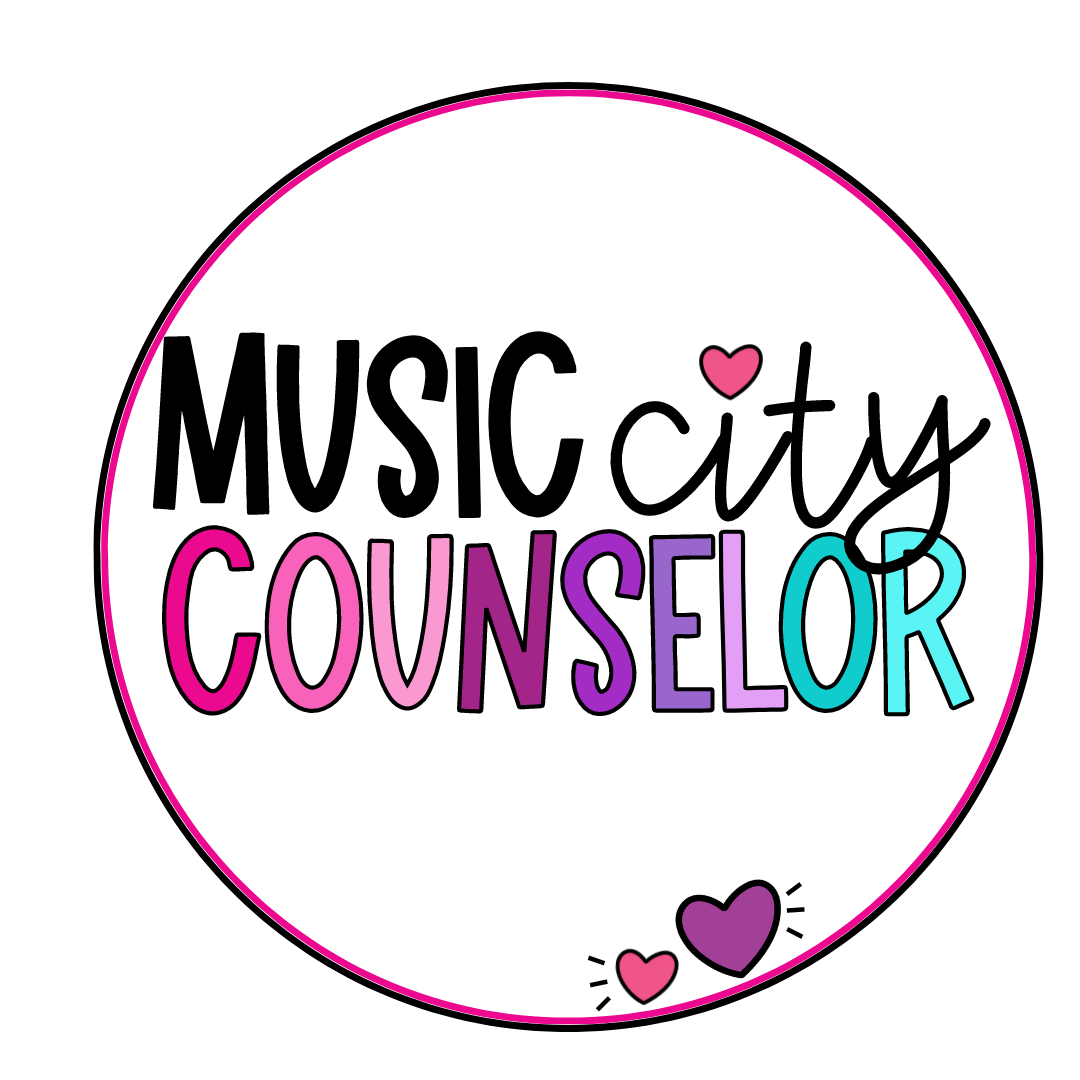

Leave a Reply